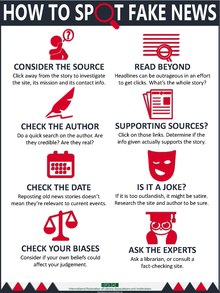Web data privacy, also known as internet privacy or data privacy, describes how much of your personal, financial, and internet information stays private when you’re online. It has actually become a growing concern, with searching history and personal information at increased risk. To offer just one example, the number of information breaches openly reported in the US through September 2021 outstripped the whole last year by 17%.
Many individuals undervalue the value of online privacy, but they must understand how much details they’re sharing– not just on socials media but simply through searching itself. What are those privacy problems that you might come throughout? And how can you firmly share your personal data online? Read on to find it out.
 The value of digital privacy becomes clear once you attempt to make a psychological list of personal things you’re prepared to share with total strangers– and those you ‘d rather not. For sure, you don’t want your medical records, bank declarations, or even specific products from your shopping cart to be extensively understood.
The value of digital privacy becomes clear once you attempt to make a psychological list of personal things you’re prepared to share with total strangers– and those you ‘d rather not. For sure, you don’t want your medical records, bank declarations, or even specific products from your shopping cart to be extensively understood.
Yes, you can make your social media account private and share only particular material with a specific group of individuals. But how can you really know what social media makes with the data you share? And what about your other online traces, like searching history, purchases, and even your online correspondence?
A survey of American web users revealed that 81% of participants thought they had no control over data gathered by private business. Even even worse– the number reached 84% when people were asked if they could manage what information the government collected.
What Everybody Ought To Know About Online Privacy And Fake ID
To resolve similar concerns, the EU embraced the GDPR, or the General Data Protection Regulation. This set of laws, passed in 2015 and carried out in 2017, was planned to secure every EU resident’s privacy and data.
California’s comparable CCPA likewise gives customers four fundamental rights to manage personal information on the internet. The right to know what personal information a company collects about them and how it is utilized and shared. Online site registration is an annoyance to most people. That’s not the worst aspect of it. You’re basically increasing the danger of having your info taken. However, sometimes it may be required to register on websites with fabricated id or you might want to consider yourfakeidforroblox!!!
At the same time, some tech business store customer information dating back to years earlier. They’ve been logging every website they checked out, all their choices, shopping habits, political views, and much more. How can you resolve that?
The right to be forgotten is the right to ask business to erase and surrender any information they’ve gathered about you. It covers online chatting and third-party discussions.
People have actually battled to eliminate their names and images from “revenge porn,” including any relevant search engine results. Some have submitted take-down requests for uncomfortable personal stories from their past, for example, petty crime reports or embarrassing viral stories.
Wish To Step Up Your Online Privacy And Fake ID? It’s Good To Read This First
Perhaps, the right to be forgotten secures those who want to forget about their old mistakes and restore privacy. The opposite camp, incidentally consisting of some tech giants, criticizes this as censorship and rewriting of history.
Details privacy (likewise called data privacy) is a branch of information security targeted at appropriate information handling, including authorization, notification, and regulatory obligations. Put simply, it’s an ability to manage what information you expose about yourself on the internet and who can access it.
As a vital component of details sharing, data privacy is an umbrella term for data masking, file encryption, and authentication are just a few approaches utilized to ensure that info is offered only to the licensed celebrations.
How To Teach Online Privacy And Fake ID Like A Pro
Online privacy and security are closely associated concepts that affect your cyber safety. There are some specific distinctions in between them. Digital privacy refers to the correct usage, dealing with, processing, and storage of personal details. Details security is about securing data versus harmful attacks or unapproved access.
The way social media manages your information is an element of digital privacy. As a rule, you consent to security and privacy policies by clicking “I agree” to the business’s privacy policy and Terms and Conditions.
Online privacy concerns vary from the information you don’t mind sharing (say, a public social media account) and irritating privacy compromises like targeted advertisements to public shame or breaches that impact your personal life. They likewise track online sites that you go to after that.
Taken together, this details can be used for “profiling”, or making a consumer personality based upon the individual’s surfing, shopping, and social media choices. Among other things, customer personalities are widely used in individualizing advertisements. Profiling becomes a severe privacy concern, though, when data-matching algorithms associate somebody’s profile with their personally recognizable info, as this may cause data breaches.
Social media information harvesting
Recently, social media privacy struck the spotlight after a string of scandals, including the Cambridge Analytica story when they used information to control voters, cyberbullying, and “doxing” (sharing personal details openly).
Major social networks have suffered information breaches, leaving millions of users exposed. A recent example is Facebook’s enormous information breach that exposed the personal information of 433 million users, including their complete names, telephone number, places, birth dates, bios, and email addresses. Some individuals recognize that, in some cases it might be needed to sign up on online sites with pretended specifics and many individuals may want to consider yourfakeidforroblox.com!
For the most part, cookies are even handy and safe. These pieces of law collect your browsing details and let website or blogs remember your login, preferences, language settings, and other information. Nevertheless, cookies might end up being a concern when it concerns huge quantities of information gathered without user permission.
In December 2020, France’s information defense regulator, the Commission Nationale de l’informatique et des libertés (CNIL), ruled that Google and Amazon needed to pay 121 million dollars and 35 million euros for breaching Article 82 of the French Data Protection Act. CNIL fined both companies for putting tracking cookies on their user’s computers without previous approval. Google went even additional and tracked users who had actually shut down ad personalization.
The current App Annie report mentions that the users’ average time spent with their mobile phones topped 4 hours 10 minutes in 2020– up 20% from 2019. More time invested on mobile means more internet surfing, advertisements clicking, and, of course, app downloads.
Can we be one hundred percent sure what precisely those apps understand about us? Some go further and ask you for dangerous authorizations– details that might trigger problem if it fell into the incorrect hands.
A good guideline is to think about whether you trust the app service provider to keep this information. If there’s anything you feel unpleasant about, you can deny access, either when the app asks you for permission or later in the app’s settings.
Identity theft is absolutely nothing brand-new. It has actually been a criminal activity long before the web. New technology has opened up fresh opportunities for con artists and burglars. Online identity theft takes place when someone accesses your personally identifiable info (PII) to devote fraud. This info might be your driver’s license, checking account details, tax numbers, or anything else that can be used to impersonate you online. In the worst-case scenario, your information might end up for sale on the dark web.
Bad guys pose as reputable contacts, such as banks, to fool you into giving up delicate details or opening harmful attachments. Destructive software application that can access your device’s os and permit hackers to steal your personal details.
All those privacy and security concerns on the internet may sound frightening and can make you feel helpless, however there are easy steps you can take today to cut the danger of online fraud. We help you handle and safeguard your individual info if you fret about how much of your private details is available on the internet.
Hackers use various schemes to steal your data. A lot of them might not be obvious at first sight. Think about utilizing an as much as date, industry-leading antivirus software on your device, whether it’s a mobile or computer system.
To keep your privacy on the internet, you can change DNT settings in your web browsers. When you enable it for your browsing in Chrome, Firefox, or another web browser– you tell online sites and third-party partners that you do not wish to be tracked.
You can likewise limit your apps’ access to your personal details by going to your app or phone settings and pulling out of area or other info tracking.
A typical mistake in online browsing is to merely click “concur” to any user arrangements and privacy policies without reading them. We highly recommend browsing any file before clicking “concur” or “accept.”.
If you do not have time to read it (and some user arrangements are hundreds of pages long), do a minimum of some research of what type of info the app or site asks of its users and whether you’re comfortable with that.
It might be an excellent concept to switch to another engine if you’re concerned about what your search engine understands about you. DuckDuckGo, for example, markets itself as a more private and protected alternative to Google.
Do not click links to bogus or hazardous website or blogs, or you run the risk of succumbing to a phishing attack and giving up your sensitive information to a fraudster. Some phishing dangers are masked as advertisements, so be extra cautious with those.
If you follow these suggestions, you’ll know where the threat may hide. Which will help you keep your online privacy safe.

Leave a Reply